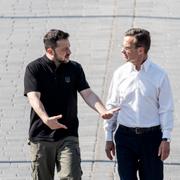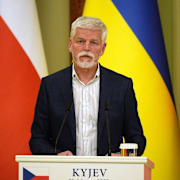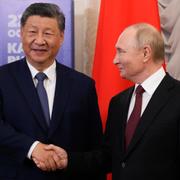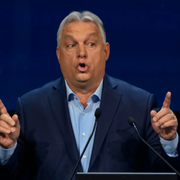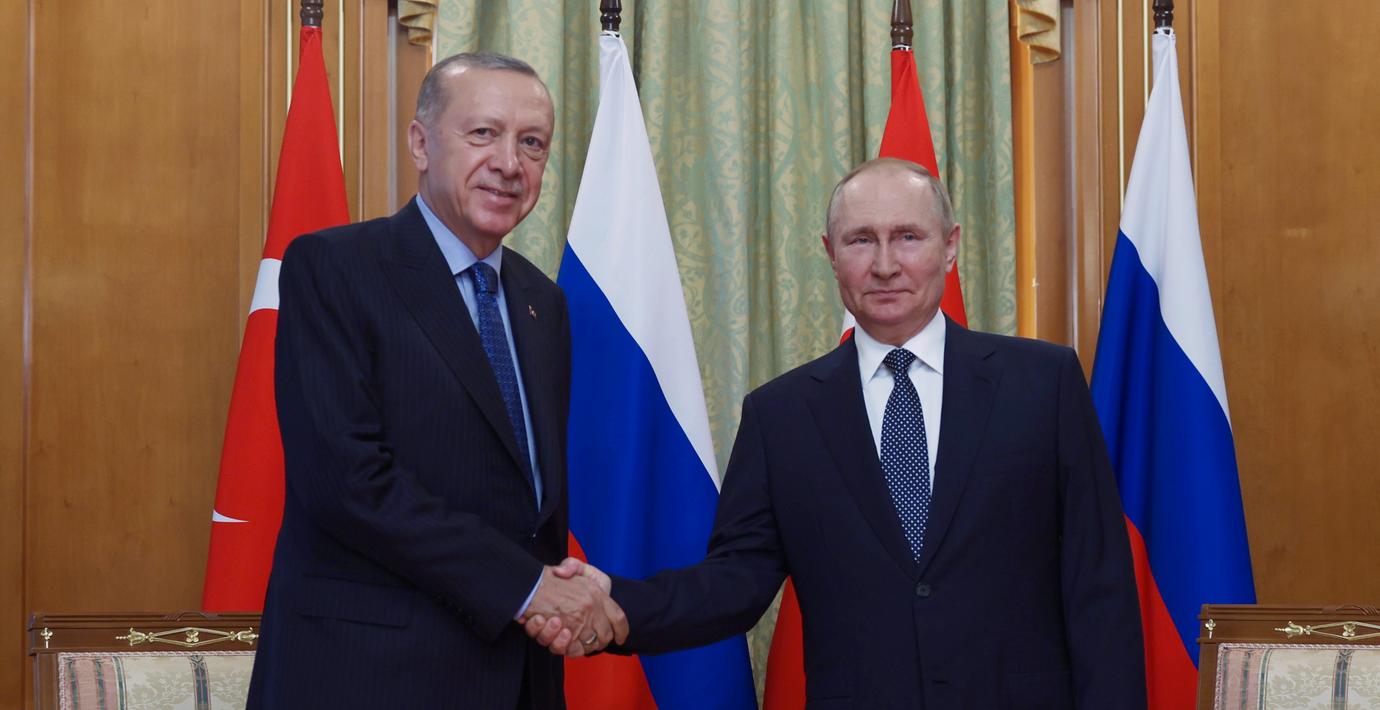
Erdogan: Har en speciell relation med Putin
Turkiet har en ”speciell” och ”växande” relation med Vladimir Putin, säger president Erdogan i en intervju med CNN.
Enligt Erdogan har Turkiet inget behov av att införa sanktioner mot Ryssland som västländerna.
– Vi är en stark stat och har en positiv relation till Ryssland [...] Ryssland och Turkiet behöver varandra på alla möjliga områden.
Hans rival om presidentposten, Kemal Kilicdaroglu, har en hårdare ton mot Kreml. Inför valets första omgång anklagade han Ryssland för valpåverkan och varnade dem för att lägga sig i den turkiska statens angelägenheter.
bakgrund
Rysk-turkiska relationer
Wikipedia (en)
Russia–Turkey relations (Russian: Российско–турецкие отношения; Turkish: Rusya–Türkiye ilişkileri) are the bilateral relations between Russia and Turkey and their antecedent states. Relations between the two are rather cyclical. From the late 16th until the early 20th centuries, relations between the Ottoman and Russian empires were normally adverse and hostile and the two powers were engaged in numerous Russo-Turkish wars, including one of the longest wars in modern history. Russia attempted to extend its influence in the Balkans and gain control of the Bosphorus at the expense of the weakening Ottoman Empire. As a result, the diplomatic history between the two powers was extremely bitter and acrimonious up to World War I. However, in the early 1920s, as a result of the Bolshevik Russian government's assistance to Turkish revolutionaries during the Turkish War of Independence, the governments' relations warmed. Relations again turned sour at the end of WWII as the Soviet government laid territorial claims and demanded other concessions from Turkey. Turkey joined NATO in 1952 and placed itself within the Western alliance against the Warsaw Pact during the Cold War, when relations between the two countries were at their lowest level. Relations began to improve the following year, when the Soviet Union renounced its territorial claims after the death of Stalin.
Following the dissolution of the Soviet Union in 1991, relations between Turkey and Russia improved significantly and the two countries came to rank among each other's largest trade partners. Russia became Turkey's largest provider of energy, while many Turkish companies began to operate in Russia. In the 1990s, Turkey became the top foreign destination for Russian tourists.
However, both countries still stand on opposite ends when it comes to foreign policy, especially in tense issues such as the Syrian Civil War, the Kosovo conflict and have opposing views on the Armenian genocide. Relations were tense following the Russian fighter jet shootdown in November 2015, becoming normalised again in 2016. As a close partner of both Russia and Ukraine, Turkey is actively attempting to broker a peaceful solution to the 2022 Russian invasion of Ukraine, and has hosted a number of high-profile negotiations between the two countries.
Omni är politiskt obundna och oberoende. Vi strävar efter att ge fler perspektiv på nyheterna. Har du frågor eller synpunkter kring vår rapportering? Kontakta redaktionen
